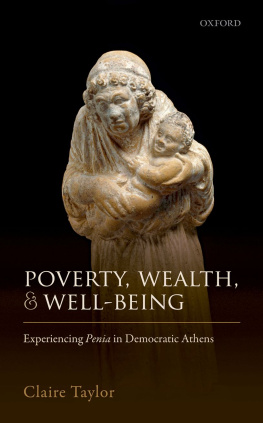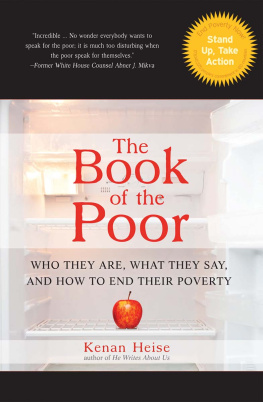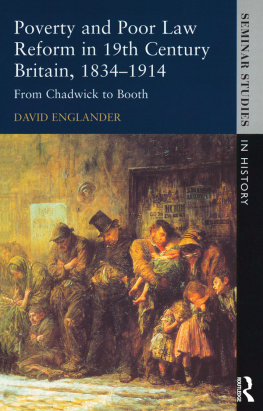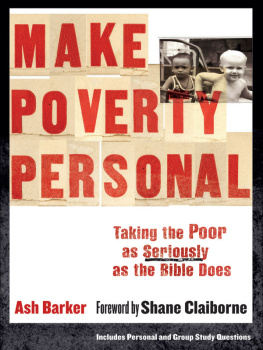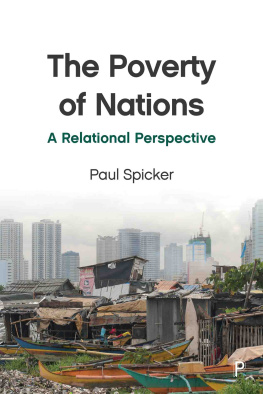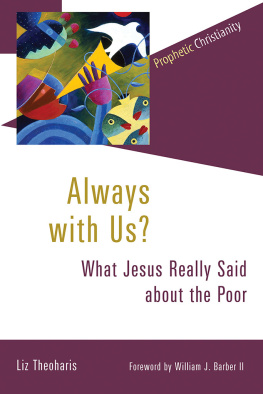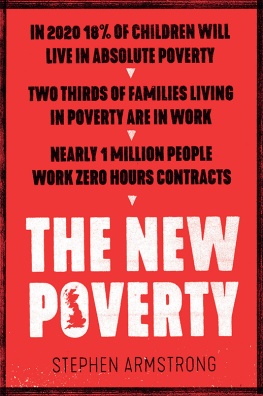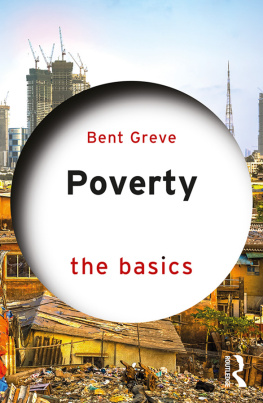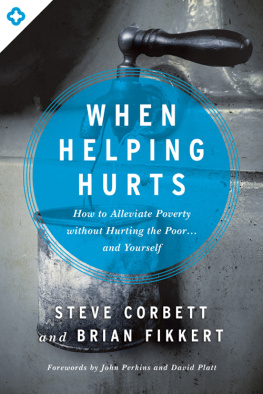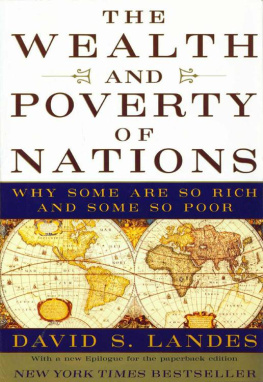Poverty, Wealth, and Well-Being

Great Clarendon Street, Oxford, OX2 6DP, United Kingdom
Oxford University Press is a department of the University of Oxford. It furthers the Universitys objective of excellence in research, scholarship, and education by publishing worldwide. Oxford is a registered trade mark of Oxford University Press in the UK and in certain other countries
Claire Taylor 2017
The moral rights of the author have been asserted
First Edition published in 2017
Impression: 1
All rights reserved. No part of this publication may be reproduced, stored in a retrieval system, or transmitted, in any form or by any means, without the prior permission in writing of Oxford University Press, or as expressly permitted by law, by licence or under terms agreed with the appropriate reprographics rights organization. Enquiries concerning reproduction outside the scope of the above should be sent to the Rights Department, Oxford University Press, at the address above
You must not circulate this work in any other form and you must impose this same condition on any acquirer
Published in the United States of America by Oxford University Press 198 Madison Avenue, New York, NY 10016, United States of America
British Library Cataloguing in Publication Data
Data available
Library of Congress Control Number: 2016962762
ISBN 9780198786931
ebook ISBN 9780191090639
Printed and bound by
CPI Group (UK) Ltd, Croydon, CR0 4YY
To YF and YM,
with deepest thanks.
Preface
This book is about poverty and well-being in Athens during the period of Athenian democracy, with the greatest emphasis placed on the century between c.420 and c.320 bce . It investigates ancient discourses about poverty side by side with approaches derived from contemporary social-science research in order to ask what it meant to be poor in the radical participatory democracy of the late fifth and fourth centuries. This was a world in which (some of) those categorized as poor had real political power, but also one in which ideas about poverty were shaped by elitist ideologies; indeed, our source material is, for the most part, heavily weighted towards those who were not at all poor. This complicates our understanding of poverty, but also raises important questions for discussion.
There is, however, a danger involved in writing about poverty and the poor as an outsider distanced from the daily struggles of the people whom you describe: it can be easy to reify the poor, to highlight the stereotypes and then create new ones yourself, to assimilate dissimilar groups of people and their various experiences together for want of a better way to describe them. It is easy to consider vastly divergent groups as homogenous, to default to concepts that should be unpicked, or to use terminology that is anachronistic or problematic in one way or another. It is easy to overlook the differences, the changes over time, and the ways in which those who were categorized as poor contested their social roles, and overlook the processes that create and reproduce poverty. I have strived to address these faults, but am sure that other historians will place emphasis in different places to those I have chosen.
It is also, to be sure, a privilege to write about poverty from a position of relative security. Over the years in which this book was conceived, written, and rewritten, the modern state of Greece (like the UK) has seen a horrendous increase in poverty and hardship, and a decrease in living standards the likes of which have not been seen for generationsa shameful consequence of un- (even anti-)democratic decision-making of political and economic elites. Writing this book whilst large numbers of people are paying the price for so-called austerity measures has solidified in my mind the importance of reframing our understanding of ancient economies from the point of view of those who were deprived, marginalized, or socially excluded in various ways.
This book would not have been produced without the support of a number of people and institutions which at various points in my career provided a (literal and metaphorical) lifeline. I was fortunate to have been part of the last cohort to have attended university in the UK before tuition fees were introduced, to have received a small, but at the time much-needed, grant from the British state to start my undergraduate studies, to have graduated with minimal debtan experience sadly taken away from large numbers of young people today. I am deeply thankful that my education was considered important enough to invest in, and for the institutions and teachers who encouraged me along the (sometimes bumpy) way.
More recently, this book has taken shape with financial support from the Leverhulme Trust, who supported an Early Career Fellowship at the University of Manchester where this project was begun, a Tytus summer fellowship at the University of Cincinnati, a residential fellowship at the Center for Hellenic Studies in Washington, DC, and the Office of the Vice Chancellor for Research and Graduate Education with funding from the Wisconsin Alumni Research Foundation at the University of Wisconsin-Madison. Each of these institutions provided congenial places to work, the intellectual space to develop as a historian, as well as time to write. I am also immensely grateful to a number of people who provided debate, discussion, criticism, as well as hospitality during these years: Jen Baird (first alphabetically, but truly just first), Kate Bayley, Paul Cartledge, Federica Carugati, Christy Constantakopoulou and family, James Kierstead, Marc Kleijwegt, Polly Low, Josiah Ober, Robin Osborne, Lene Rubinstein, Dan Stewart, as well as the anonymous readers for the press. There will still be disagreements, of that I am sure; I remain, nevertheless, most thankful.
In addition, participants at the Stanford Wealthy Hellas seminar put me through my paces and forced me to rethink (as well as defend) a number of my assumptions; audiences in Florida, Vienna, Bangor, Gregynog, and Manchester helped me sharpen various parts of my argument and discard other parts; Claudia Tierschs conference (Die athenische Demokratie im 4. Jh.: zwischen Modernisierung und Tradition) provided much-needed encouragement at a time when the project was lagging, and the Department of History at UW-Madison has provided a superbly stimulating environment to finish this book. Last but not least, Thanasi Papapostolou provided far more encouragement than he ever realized, as well as welcome distraction. I am grateful to you all.
Contents
For ancient authors and works I have used the abbreviations of the Oxford Classical Dictionary fourth edition for the most part (so Isoc. rather than Isok.), even though I have preferred to transliterate Greek names (rather than used Latinized forms). I trust this will not be too confusing to the reader. Unless stated otherwise, translations of literary texts are from the Loeb Classical Library.
Additional abbreviations are as follows:
| Agora XVI | A. G. Woodhead 1997. The Athenian Agora XVI. Inscriptions: The Decrees. Princeton: American School of Classical Studies at Athens |
| Agora XVII | D. W. Bradeen 1974. The Athenian Agora XVII. Inscriptions: The Funerary Monuments. Princeton: American School of Classical Studies at Athens |

